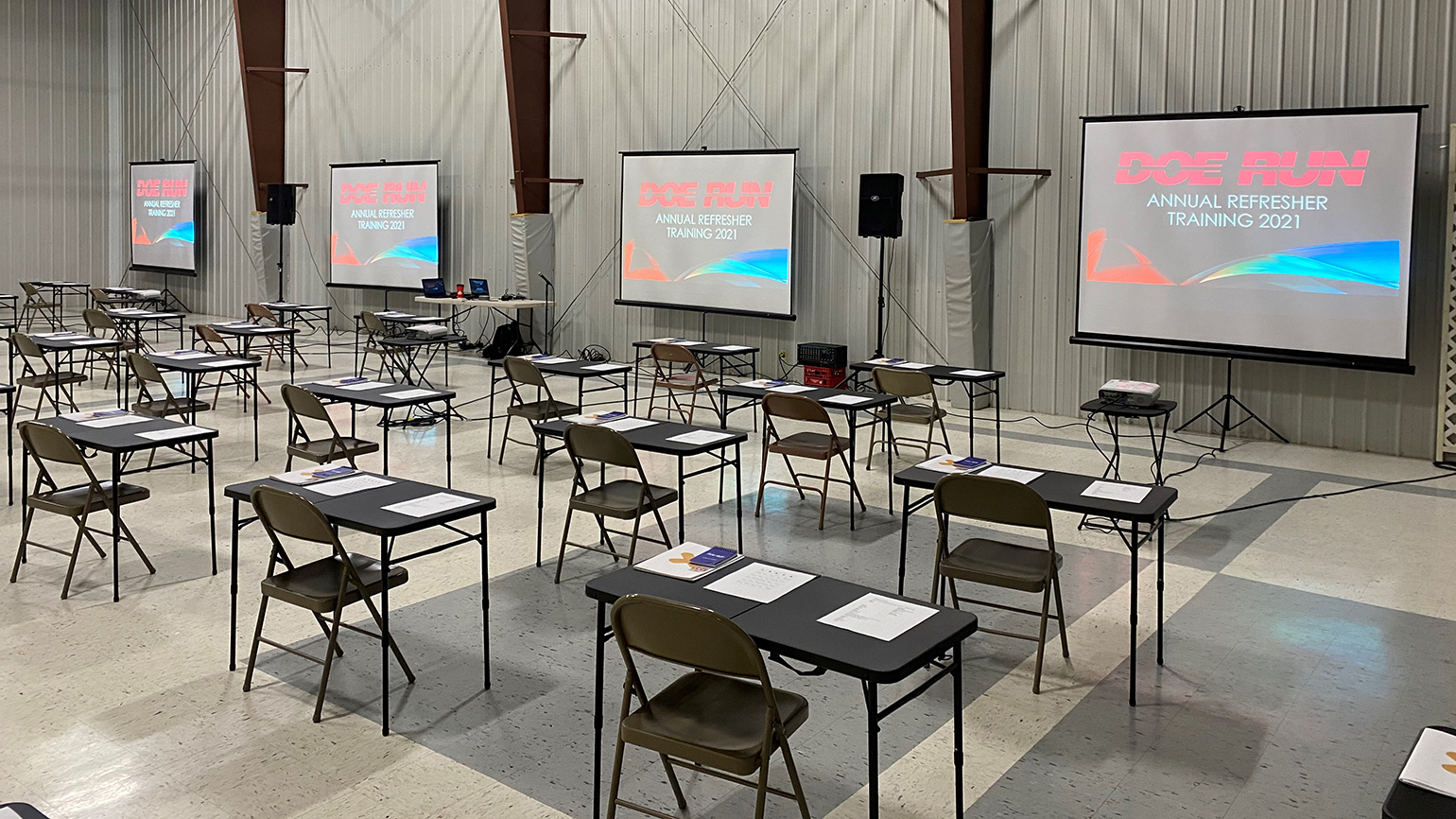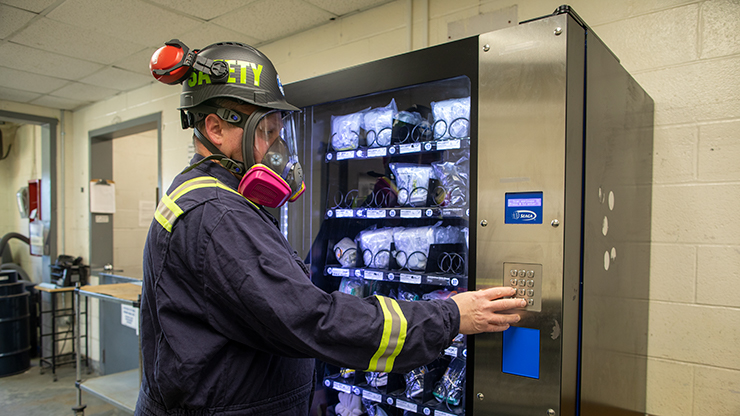Working Safely During COVID-19
8 Jun 2021

The global pandemic has put health and safety in the spotlight like never before. Because safety is so foundational to our culture, Doe Run was well-prepared to adapt to the added challenges of working as an essential business during a pandemic.
While our workplace looks a little different now, we have been able to maintain production without any known instances of employees contracting the virus while at work. Beginning in March 2020, our HR and health and safety team implemented changes following the CDC’s guidelines, including:
- Social distancing.
- Increased cleaning of high-touch areas, like door handles.
- Closely tracking exposures and requiring anyone who may have been exposed to COVID-19 in their personal life to quarantine to avoid spreading to others.
- Alerting any employees who may have come into contact with a person exposed to or diagnosed with COVID-19, so they could isolate and monitor for symptoms as appropriate.
“Compared to many workplaces, we were better equipped to handle the pandemic because we already have industrial hygiene programs and practices integrated into our systems. For example, hand washing is an important part of controlling lead exposure,” said Maggie Crocker, environmental, health and safety manager at the Resource Recycling facility. “Small changes, like wearing masks when around others and limiting the number of people in our control rooms or mine shaft elevators, enabled the rest of our employees to protect themselves and one another.”
Another foundational piece of our safety culture is regular training. During the pandemic, Resource Recycling modified its monthly classroom training to be done via video to avoid people gathering in large groups. At our Southeast Missouri Mining and Milling Division (SEMO), the all-day annual refresher program was conducted by a third-party trainer via live feed, and held with much smaller groups to allow for social distancing. The pandemic required us to adapt in ways that were unanticipated, but our trainers found ways to keep these sessions informative and effective. We expect to capitalize on these benefits and plan to continue to use a hybrid system of in-person and video training after the pandemic. In total, Doe Run employees completed nearly 16,000 hours of environmental, health and safety training in 2020.
Personal Protective Equipment Upgrades at Resource Recycling

As an essential industry, our work continued, and so did our need to manage employee safety in all ways – beyond COVID-19. An example of this is identifying new equipment to help better protect Resource Recycling employees on the job. One of the most used forms of PPE in our facility are gloves, which are needed for everything from handling hot materials to protecting an employee in the battery breaking area from acid exposure. In 2018, we reassessed our current glove options to ensure optimal protection.
Over the course of a year, employees tested and provided feedback on many types of gloves designed for different types of work. Once we selected the best fits, we installed a dispensing machine that provides the correct gloves based on the employee’s assigned job task.
“I grew up here and my family is deeply rooted in this community – my mom taught some of my coworkers in school. I’m proud to be making the workplace safer for my neighbors, my friends and their families.”
Maggie Crocker, EHS manager at Resource Recycling
We’re also using new technologies to improve our pre-shift equipment safety inspections and improve overall maintenance. In 2020, Doe Run’s IT team developed a new app to help Resource Recycling’s maintenance team maintain mobile equipment. The app enables employees to conduct equipment inspections utilizing a tablet prior to beginning each shift. By utilizing the tablet, the information is uploaded directly to a database, replacing a tedious manual process, improving maintenance scheduling and ensuring equipment is safe for employees to use.
Recognizing Safety Opportunities at SEMO
Even with a strong safety culture, we always look for ways to improve. One way we do this is by analyzing near-misses – situations that could have resulted in an accident, but didn’t. In 2019, we rolled out a program that incentivizes SEMO employees to report near-misses so we can all learn how to avoid potential mishaps. Employees who submit near-miss reports are entered into quarterly drawings to receive a prize. Since beginning the program, employees have submitted two dozen near-miss examples.
“The near-miss program is important because it encourages employees to think every day, what if something had gone differently? And then provides an additional incentive to speak up, so we all can learn from it,” said Doug Center, safety specialist at SEMO. “It’s all about recognizing the opportunity we have to improve how we work to prevent accidents.”
In 2021, the SEMO safety team will build on what has been learned through the near-miss program by preparing and conducting Toolbox Talks, small group meetings that will provide refreshers on specific topics related to near-misses.
Safety Milestones
In 2020, our strong focus on safety helped several of our facilities reach at least 10 years worked with no lost-time incidents:
- 23 years at Sweetwater Mill
- 21 years at the Seafab Metals facility of Fabricated Products Inc. (FPI), a wholly owned subsidiary of Doe Run
- 16 years aboveground at Sweetwater Mine
- 14 years at the SEMO port, the Missouri river port where Doe Run ships our metal concentrates
- 13 years at Brushy Creek Mill
Typically, another point of pride for our safety culture is the success of our mine rescue teams. While regional and national competitions were canceled in 2020 due to the pandemic, our teams continued to train so they are prepared to help their fellow employees in the event of an emergency. We hope to be able to participate in mine rescue competitions once again in 2021.


